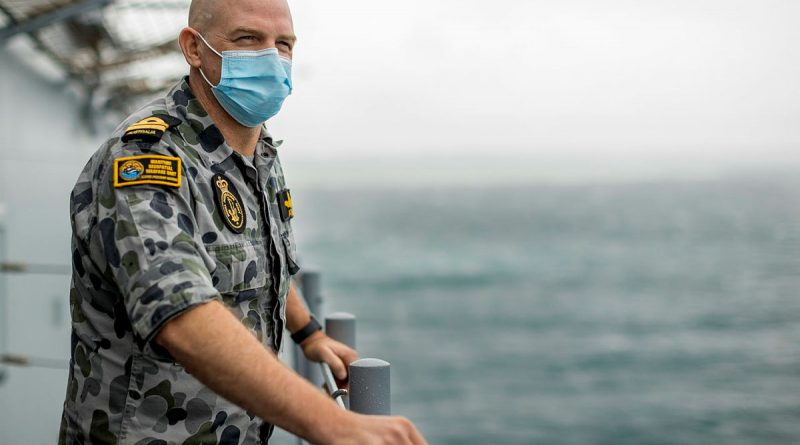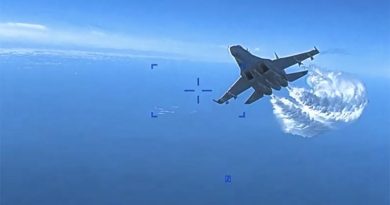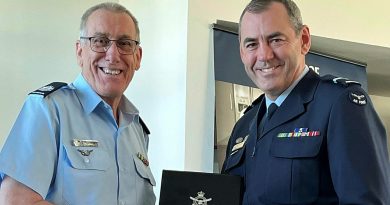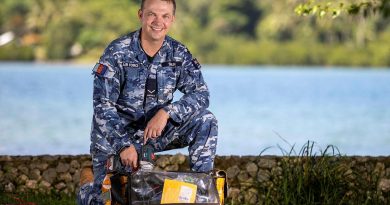Unique skill set helps ADF task force

A deployment to Tonga after a large volcanic eruption and tsunami has been a fascinating opportunity for a Royal Australian Navy meteorologist and oceanographer to use his skills to help others.
CAPTION: Royal Australian Navy meteorologist Lieutenant Daniel Atwater onboard HMAS Adelaide during Operation Tonga Assist 2022. Story by Captain Zoe Griffyn. Photo by Corporal Robert Whitmore.
Lieutenant Daniel Atwater is using his meteorologist and oceanographer (METOC) skills to provide HMAS Adelaide’s command group with assessments of the active state of the Hunga Tonga-Hunga Ha’apai volcano, tropical weather systems and oceanic conditions to help better inform operations during Operation Tonga Assist 2022.
“We transform atmospheric and oceanographic data into intelligence that tactical decisions can be made from to safeguard our operations,” Lieutenant Atwater said.
The METOC used scientific observations to guide commanders and give them options as to where they might deploy troops, ships, and aircraft to improve mission objectives.
“We help commanders understand how variables such as the temperature and the ultraviolet (UV) index will affect troops, or how the sea state and prevailing winds will affect maritime operations,” Lieutenant Atwater said.
“We look at how visibility and showers will affect aviation, how tidal streams and currents affect diving operations and how moonlight will impact night operations.”
Originally from Alamo near San Francisco, California, Lieutenant Atwater moved to Australia with his wife in 2008 to work in radar technology.
“We both fell in love with the country and wanted to raise a family,” Lieutenant Atwater said.
Lieutenant Atwater briefly served in the US Navy but jumped at the opportunity to join the Royal Australian Navy to combine his passions of service and science.
“I believe in service, and I wanted to honour the country I immigrated to, doing something I’m passionate about,” he said.
While deployed in Tonga, Lieutenant Atwater conducted research to better understand the impacts from the underwater volcano’s eruption. This research may also have wider use for the international science community.
Most tsunamis are generated from deep geological events, however, in Tonga’s case it originated in relatively shallow water.
“By gathering data on how the ocean changed over the volcano’s centre we may be able to better understand and predict what may happen next time,” Lieutenant Atwater said.
Lieutenant Atwater’s journey was inspired by his father, who was a science teacher and fascinated by physics.
“I love what I do because it’s a story. You’re shaping the story of the forecast and the climate,” Lieutenant Atwater said.
“It’s a puzzle that is put together to understand our planet a little bit better.”
.
.

.
.





